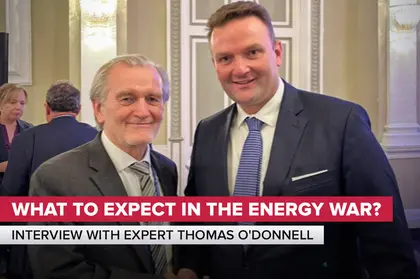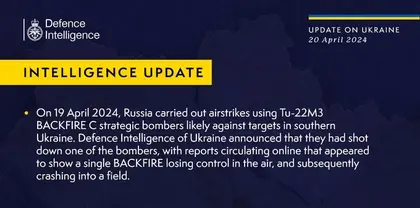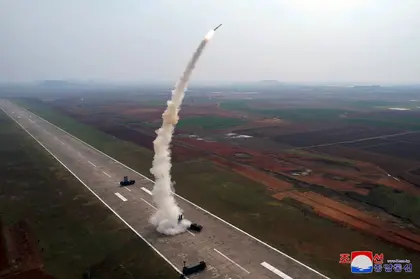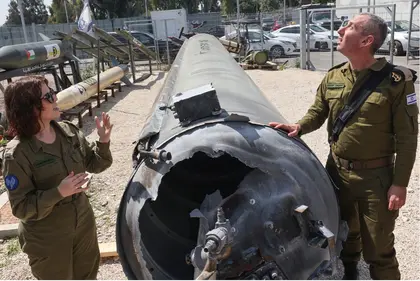Dr. Thomas O’Donnell is an American energy and geopolitics expert, based for the last decade in Berlin. He has been deeply engaged in analysis and critique of the German-Russian gas partnership and continues to undertake work on geopolitics surrounding global oil markets and OPEC/OPEC+ states.
A nuclear physicist by training, O’Donnell is a proponent of a European nuclear renaissance over the perceived dangerous illusions of “100 percent renewables and no nuclear” policies. He blogs at GlobalBarrel.com and his Twitter handle is @twodtwod.
He spoke to Kyiv Post’s Jason Jay Smart about Russia’s weaponizing of energy supplies, how long that can go on, and the outlook for winters to come in Europe.
What do you make of the bombing of the underwater Nord Stream pipelines?
We must be clear when we talk about the bombing of Nord Stream 1 and Nord Stream 2 pipelines – Europe is being subjected to an energy war by Russia, which is part of the larger Russian war against Ukraine. We see that the battlefield war isn’t going well for Russia, so Russia is betting on its energy policies being able to cause enough economic pain for Europeans to divide Europe, with hopes that Europe will then abandon its solidarity with Ukraine.
Which is more strategically valuable to Russia and why: Gas or oil?
[Russian President] Vladimir Putin has much more leverage over Europe with gas than with oil.This is because gas is mainly delivered by pipelines. It will be around 2027 until Europe, the U.S., Qatar, and others increase liquefied natural gas export capacity sufficiently to replace the EU’s Russian gas dependence and allow EU gas prices go down to near the low prices found in in the U.S. Importantly, Russia generally makes a fraction as much revenue from gas exports as oil exports. From Putin’s perspective, he can do more damage by cutting gas supplies to Europe than cutting oil exports.
Do you think that Russia’s leverage with gas would have continued with or without this war?
Not only has Putin always made much less from exporting gas than exporting oil; he clearly understands that within a few years, his gas business is going to die anyway.
How so?
Germany and other European countries had already committed to weaning off Russian gas once the war began, and Germany is under immense U.S. pressure. Putin knew that his leverage over Europe was ending, so he knew he had to use his gas leverage before he lost it. It will be heavily diminished after the 2022-23 and 2023-24 winters.
What impact will Russia blowing up Nord Stream have?
It will have very little effect on the gas market in the near term. There were no sanctions on receiving this gas on the European side. However, Gazprom, on the orders of the Kremlin, had cut all flow via Nord Stream 1, thus not meeting its contracts to deliver natural gas to many European firms.
Some of those European firms are going bankrupt or in need of nationalization. These companies will likely sue Gazprom for tens-of-billions of dollars in damages. There will then be leans put on Gazprom infrastructure in Europe for nonpayment, such as pipelines, storage facilities, refineries, perhaps ships, etc.
So, by blowing up these gas lines, Gazprom hopes to legally argue “force majeure” and say it has no means of being able to fulfil the orders to deliver the contracted gas. This is the going theory among European gas-sector experts.
How bad can we expect the energy situation in Europe to become?
Things in Europe will get hard. It’s an energy war, and in war both sides take casualties – consumers and firms in the EU will suffer. It will take at least four years to get huge new U.S. and Qatari LNG-export projects fully online for European consumption. Europe will need to continue getting as much gas as possible also from Algeria, Egypt, Norway, and others.
Citibank’s Ed Morris says that it will be 2026 or 2027 before European prices equalize with U.S. levels as its former Russian gas imports are fully replaced. It will be painful – there will be serious casualties in the business community in the short-term to not have access to Russian gas. Citizens will have to turn down thermostats and electricity use (often this is gas-generated), and we will likely see recession, unemployment and very high household energy prices.
Hasn’t Putin sought to distance himself from the lack of supply to Europe?
Putin initially said that a refusal to pay in Rubles was a justification to cut supplies; then Moscow said Nord Stream 1 compressors were broken and sanctions prevented their repair and re-import. However, allies made it clear the compressors are ready for delivery. Moreover, Nord Stream 1 has five or six more of them that Siemens said could be routinely repaired on site and not taken out of service.
In short: Putin ran out of technical reasons for any legal claim for “force majeure” to cut-off sales to Europe. However, by blowing up the pipeline, state gas-export monopoly Gazprom can now argue that their hands are tied.
Many argue that next year will be worse for Europe than this year. What do you think?
This year, Europe has filled a lot of its gas reserves. Next year will be harder. All things being equal, in an average winter, the German pipeline-network agency chief says storage can last about 2.5 months. What people need to understand is that storage was never meant to be the normal supplier. Storage is simply meant to cover the extra demand from winter saved up in summer when the huge Russian, Norwegian and other pipelines cannot possibly meet demand.
Do you notice a fear of shortages in Germany?
Germans have ordered that heating in houses cannot exceed 19 degrees Celsius and have done away with the law requiring a minimum temperature in homes. There is also serious discussion of blackouts in some countries so that hospitals and other priority services get gas, while ordinary people might not.
Europe has an overdependence on wind energy, and – if the wind is low, combined with no meaningful grid storage and a very cold winter as in the 2020-21 winter season – it could be devastating. One has to be honest with citizens in times of war.
How will this all end?
We all know that Ukraine will win militarily.
As an energy expert, I would point out that there is an energy war being waged by Russia against Europe to undermine solidarity. In the U.S. and Qatar especially, as well as in Norway, Algeria, Azerbaijan, Israel and Egypt, etc., there are plenty of new gas reserves, financing, technology, and functioning markets. Looking four-to-six years hence, all of what Europe depended on Russia to supply will be completely replaced. Oil too.
And what will come of Russia?
Russia will be reduced from being an energy superpower to a second or third-rate OPEC country. Dr. Fadi Birol, head of the International Energy Agency (IEA) has said similar things. If we persist, like Ukraine, through the initial hard fight, we can certainly win.
You can also highlight the text and press Ctrl + Enter






Comments (0)